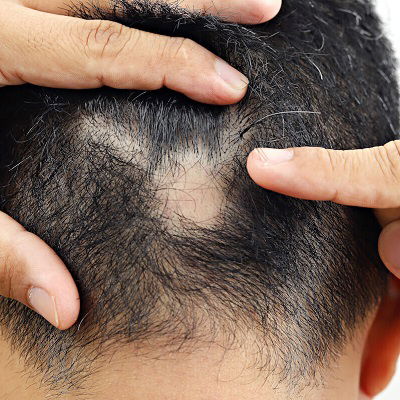How Genetics Influence Hair Loss: What to Expect
Hair loss is a common concern for many individuals, and its effects can be both psychological and social. One of the primary factors influencing hair loss is genetics. Understanding the role genetics plays in hair loss can help individuals prepare for and manage this condition effectively. For those seeking solutions, consulting the Best Hair Loss Treatment Clinic in Oman may provide valuable insights and treatment options tailored to individual needs.

Understanding Genetic Hair Loss
The Science Behind Hair Loss
Genetic hair loss, also known as androgenetic alopecia, affects both men and women and is often hereditary. It is characterized by a progressive thinning of hair and is linked to hormonal changes and the sensitivity of hair follicles to androgens, particularly dihydrotestosterone (DHT). Research has shown that this condition is influenced by multiple genes, which can complicate the inheritance patterns.
Common Patterns of Genetic Hair Loss
Men typically experience male-pattern baldness, which often begins with a receding hairline or thinning at the crown. Women, on the other hand, generally experience female-pattern hair loss, characterized by overall thinning, particularly at the crown, while maintaining the hairline. Recognizing these patterns can aid in early intervention and treatment.
The Role of Family History
Identifying Your Genetic Risk
One of the most significant predictors of hair loss is family history. If your parents or grandparents experienced hair loss, you may be at an increased risk. Analyzing your family's hair loss patterns can provide insights into what to expect and guide discussions with professionals at a Hair Loss Treatment Clinic in Oman.
Understanding Genetic Testing
For individuals concerned about their risk of hair loss, genetic testing may offer valuable information. These tests can identify specific genes associated with hair loss, allowing for a more personalized approach to prevention and treatment. Discussing the results with a healthcare provider can help clarify the implications and options available.
Lifestyle Factors and Their Interaction with Genetics
The Influence of Diet and Nutrition
While genetics play a crucial role in hair loss, lifestyle factors such as diet can also significantly impact hair health. Nutritional deficiencies, particularly in vitamins and minerals like iron, biotin, and vitamin D, can exacerbate hair loss. A balanced diet rich in these nutrients can support healthy hair growth and may mitigate some genetic predispositions.
Stress and Hormonal Changes
Stress can trigger or worsen hair loss, especially in those genetically predisposed. Managing stress through healthy coping mechanisms, such as exercise, meditation, or counseling, can improve overall well-being and potentially reduce the impact of genetic hair loss. Consultation with professionals at a Hair Loss Treatment Clinic in Oman can provide tailored strategies to manage stress-related hair loss.
Treatment Options for Genetic Hair Loss
Medical Treatments
For those experiencing genetic hair loss, several medical treatments can be effective. Minoxidil (Rogaine) and finasteride (Propecia) are commonly prescribed options that can help slow hair loss and promote regrowth. These treatments are more effective when started early, making it crucial to consult a healthcare provider at a Hair Loss Treatment Clinic in Oman for personalized recommendations.
Advanced Techniques and Procedures
In addition to medical treatments, advanced procedures such as platelet-rich plasma (PRP) therapy, hair transplants, and low-level laser therapy (LLLT) have gained popularity. These options can provide more permanent solutions for those seeking to restore their hair. Discussing these options with experts can help you determine the best course of action based on your specific situation.
Psychological Impact of Hair Loss
Coping with the Emotional Effects
The emotional toll of hair loss can be significant. Many individuals experience anxiety, low self-esteem, and social withdrawal due to their changing appearance. It is essential to acknowledge these feelings and seek support from friends, family, or mental health professionals. Joining support groups or forums can also be beneficial for connecting with others facing similar challenges.
Seeking Professional Help
For those struggling with the psychological aspects of hair loss, professional counseling or therapy can be invaluable. Mental health professionals can provide strategies to cope with anxiety and boost self-esteem, helping individuals navigate the emotional landscape of hair loss more effectively.
Future Perspectives on Genetic Hair Loss
Advances in Research and Technology
As research continues to evolve, new treatments and solutions for genetic hair loss are continually emerging. Advances in genetic research, hair follicle regeneration, and personalized medicine hold the promise of more effective interventions. Staying informed about these developments through discussions with professionals at a Hair Loss Treatment Clinic in Oman can provide individuals with hope and direction.
Conclusion: Embracing Change and Seeking Help
Understanding the genetic influences on hair loss is crucial for managing expectations and exploring treatment options. While genetics play a significant role, lifestyle factors, emotional support, and medical interventions can make a difference. For those concerned about hair loss, reaching out to a Hair Loss Treatment Clinic in Oman is a proactive step towards finding personalized solutions and reclaiming confidence in one’s appearance. Embracing the journey and seeking support can empower individuals to face hair loss with resilience and grace.
